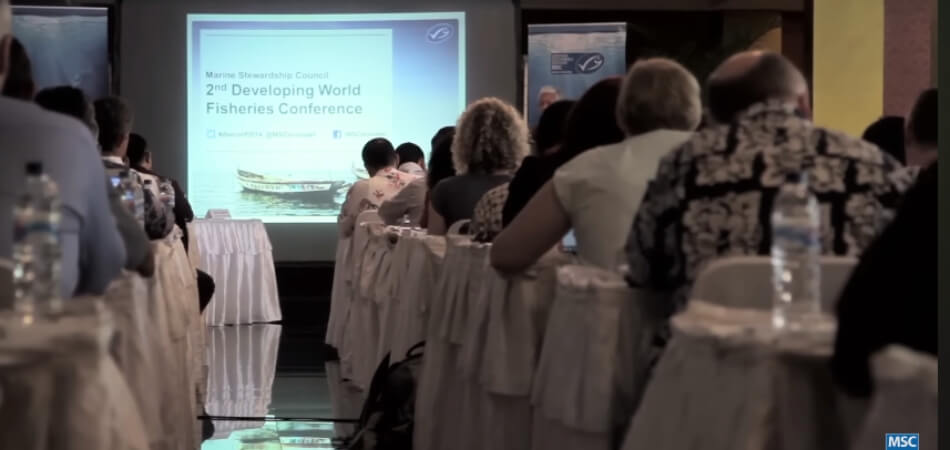Attending conferences can be an invaluable experience for professionals to expand their network, gain knowledge, and stay updated with industry trends. But one common question always arises: How much does it cost to attend Fisheries Conference?
Attending a Fisheries Conference might cost different amounts depending on the location, length of time, type of participant, and organizer. Student or early bird discounts could be available. Prices might range from $100 to $1,000 or more on average. For precise cost information, it’s better to visit the websites of each conference.
In the following article, we’ll take a closer look at the variables that affect conference costs and how to minimize your costs while attending this worthwhile gathering.
The Purpose of the Fisheries Conference
Fisheries conferences serve as a nexus for professionals from around the world to converge and share their expertise. These gatherings offer attendees the chance to delve deep into research, trends, and groundbreaking developments within the industry. By fostering collaboration, they pave the way for sustainable fisheries management and innovative strategies.
In addition to academic and research insights, these conferences often spotlight the economic aspects of fisheries. Industry stakeholders can evaluate market dynamics, trade policies, and investment opportunities, ensuring a prosperous and resilient sector. This balanced approach caters to both the conservation and commercial interests within the fisheries domain.
Beyond the direct industry discussions, fisheries conferences emphasize the broader environmental and social implications. They underscore the significance of healthy aquatic ecosystems for global food security and community livelihoods. By addressing these wider concerns, these conferences contribute to a holistic understanding and responsible stewardship of our marine resources.
Types of Fisheries Conferences for Attendees
Fisheries conferences come in various flavors, each tailored to distinct aspects of the industry. From sustainability to technology, there’s a platform for every niche. Here are some key types of Fisheries conventions for interested attendees.
Sustainability and Conservation Summits
Focused on sustainable fishing practices, these conferences prioritize marine conservation and ecological balance. Experts discuss policies, research, and innovative methods to ensure responsible fishing. Collaborative efforts are encouraged to protect marine biodiversity.
Technological Advancements Forums
These forums showcase the latest technological breakthroughs in the fisheries sector. From state-of-the-art equipment to digital solutions, attendees learn about cutting-edge innovations. The emphasis is on optimizing efficiency while minimizing environmental impact.
Aquaculture Conventions
Aquaculture, or fish farming, has its dedicated conventions. These delve into best practices, research findings, and challenges in fish farming. They aim to enhance production while ensuring sustainability and health standards.
Economic and Trade Seminars
These seminars provide insights into the commercial side of fisheries. Stakeholders explore market dynamics, trade regulations, and global supply chains. These gatherings foster partnerships and identify growth opportunities.
Community and Small-scale Fisheries Gatherings
Community-based fisheries often operate on traditional knowledge. These gatherings celebrate such practices, addressing their unique challenges and successes. They aim to support these fisheries in adapting to modern challenges.
Educational and Training Workshops
Tailored for budding professionals, these workshops offer hands-on training and education. Attendees learn from seasoned experts, gaining practical skills and knowledge. They are essential for newcomers and those seeking to upskill.
By understanding the specific focus of each conference, attendees can select the most relevant platform for their needs and interests. Whether it’s technology, sustainability, or economic dynamics, there’s a fisheries conference out there for everyone.
How Much Does it Cost to Attend Fisheries Conference?
Professionals who manage the fisheries industry frequently come into one important question: How much does it cost to attend Fisheries Conferences? When we investigate this question, a number of variables are involved that affect the total cost. To gain a better idea, let’s dissect these components.
Location and Venue
The conference’s geographic location significantly impacts cost. International events might necessitate pricey flights, accommodation, and visa expenses. Local conferences, while reducing travel costs, may have venue-related expenses depending on the city’s cost of living.
Duration and Scale
Multi-day events naturally demand a higher investment due to extended programming. While longer conferences offer richer content, they also necessitate budgeting for accommodation and meals over multiple days. However, the depth of learning often justifies the expense.
Type of Participant
Fees often vary depending on attendee classification. Students or early career professionals might enjoy reduced rates, sometimes up to 50% off. Conversely, industry leaders or businesses might pay a premium, especially for exhibition spaces or sponsorship opportunities.
Additional Activities
Beyond the main event, conferences might offer specialized workshops or marine excursions. These enrich the learning experience but can inflate the total cost. Attendees must decide if these additions offer valuable networking or learning opportunities worth the extra fee.
Early Bird and Membership Discounts
Registering in advance often comes with cost benefits, sometimes saving up to 30%. Additionally, being a member of partner organizations or industry bodies can yield further discounts. It’s wise to capitalize on these opportunities for savings.
Inclusions in Fee
It’s essential to discern what the registration fee encompasses. While some conferences provide comprehensive packages that include meals, course materials, and all session access, others might have a la carte pricing for workshops or special sessions, necessitating extra outlay.
To make the most of a fisheries conference, prospective attendees should consider all these variables. By weighing the benefits against the costs, one can make an informed decision that aligns with both professional goals and financial constraints.
Popular Fisheries Conferences and Their Cost
Fisheries conferences are the finest places to network with colleagues and learn about current developments in the field. These events are widely scheduled; however, their prices differ. Here is a list of some of the most well-known conferences and the costs involved.
Global Conference on Fisheries
Hailed as one of the most comprehensive events in the fisheries sector, the Global Conference on Fisheries brings together experts, policymakers, and industry enthusiasts from every corner of the world. The conference encompasses a plethora of topics, ranging from sustainable fishing practices to the latest in marine research.
As for the cost, participants can anticipate a fee structure of around $650-$850, exclusive of travel and stay. The price reflects the inclusive nature of the conference, featuring sessions by international luminaries, interactive workshops, and opportunities for cross-border collaborations.
International Fisheries Symposium
A renowned global gathering, this conference attracts top industry leaders. Attendees can expect costs around $600-$800, excluding accommodation and travel. Student rates and early-bird discounts are often available.
Aquaculture Technology Expo
Focusing on innovative fish farming technologies, this expo is a must-attend. Registration generally hovers between $400-$600, with added costs for workshops. The price can fluctuate based on location and duration.
Marine Conservation Summit
Prioritizing marine ecosystem health, this summit gathers conservationists worldwide. Participation costs typically range from $500-$700. However, there are occasional sponsorships and grants for select attendees.
Fish Trade and Market Forum
This forum explores the commercial side of fisheries. With fees around $450-$650, it offers insights into global fish trade dynamics. Additional workshops or sessions might carry separate charges.
Traditional Fisheries Gathering
Celebrating indigenous and local fishing practices, this unique conference is insightful. Costs can be relatively lower, averaging $300-$500, reflecting its community-driven nature. Scholarships for local participants are often available.
Fish Tech Innovators Workshop
This workshop spotlights cutting-edge technological advancements in the sector. Registration fees are around $400-$600, given its specialized focus. Attendees also get hands-on experiences, making it value for money.
Professionals that successfully navigate these conferences stay on the cutting edge of business advancements. Attendees can maximize their learning experiences and make educated decisions by being aware of the expenses and evaluating them against the rewards.
Tips for Reducing the Cost of Attending a Fisheries Conference
Attending fisheries conferences can be an investment, both in time and money. However, with a strategic approach, one can mitigate some expenses. Here are tips to help you attend without breaking the bank.
- Early Registration: Many conferences offer early bird discounts. Registering in advance can save a significant amount, sometimes up to 30%.
- Membership Benefits: Joining related industry associations often comes with perks. Members might get special rates or exclusive discounts for conferences.
- Seek Sponsorships: Some organizations sponsor employees’ participation. Discuss with your employer about potential sponsorship or partial funding opportunities.
- Budget Accommodation: Instead of luxury hotels, consider hostels or shared accommodations. Platforms like Airbnb can offer affordable and comfortable stays.
- Travel Smart: Booking flights well in advance usually ensures better rates. Also, consider traveling during off-peak hours for added savings.
- Pack Meals: Conference food can be pricey. Carrying homemade snacks or meals can significantly cut down daily expenses.
- Shared Transport: Sharing cabs or using public transport reduces commuting costs. Apps like UberPool or carpooling with other attendees can be economical.
- Volunteer at the Event: Some conferences offer fee waivers for volunteers. Lending a hand can get you free or discounted entry.
- Virtual Participation: If physical attendance is costly, check for virtual participation options. Online attendance can be significantly cheaper and still valuable.
- Group Discounts: Attending with colleagues or friends? Many events offer group discounts, making it cost-effective for everyone.
By employing these strategies, attendees can ensure they gain valuable insights from fisheries conferences without straining their finances. It’s all about planning smartly and making informed choices.
Conclusion
Figuring out which fishery events to go to can be a little tricky and may cost a bit. We often ask, how much does it cost to attend Fisheries Conference? Because we want to know if going is worth our money. It’s like buying something; we want to make sure we get good stuff for what we pay.
Choosing the right meeting to go to isn’t just picking a topic we like. It’s also making sure it fits our plan and wallet. There are different meetings, like those about fish tech and those about keeping fish environments safe, and knowing how much each one might cost us is really important.
Remember, spending money to go to a conference is not just buying a ticket. It’s putting money into learning new things, meeting new people, and maybe even helping our future job in the fish industry. So, choosing the right one and planning smartly makes sure our money is well spent.








